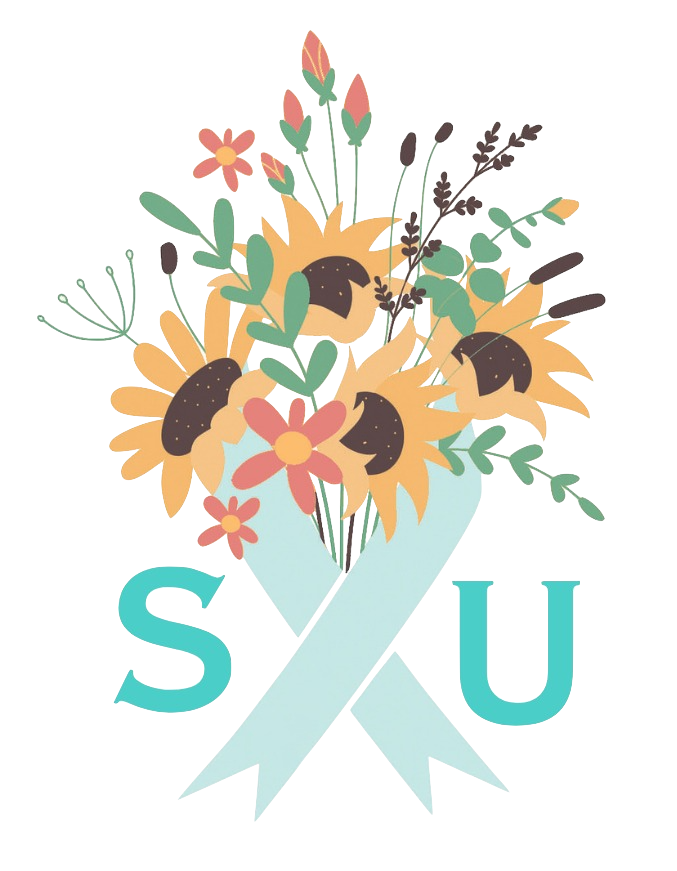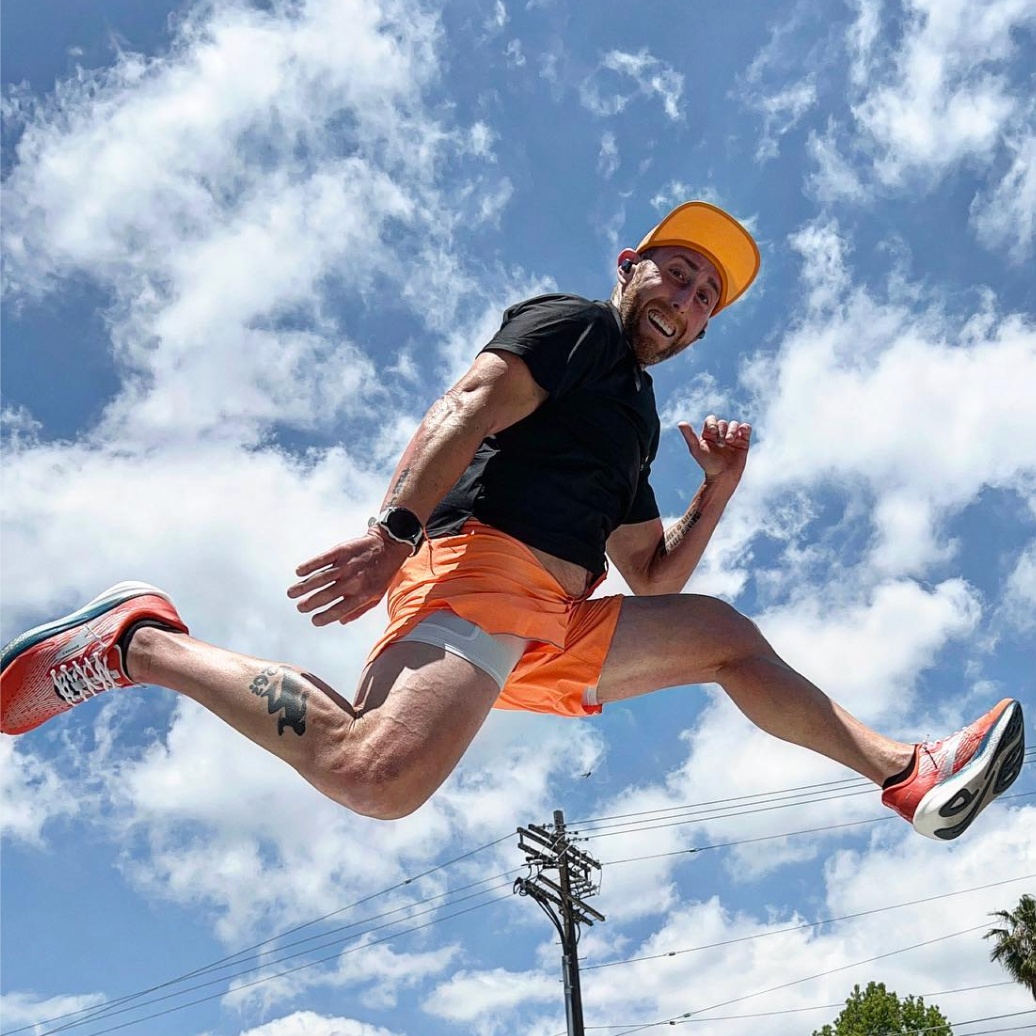Los Angeles, California (United States)
NATASHA SISODIYA
Scleroderma Stories Issue 4
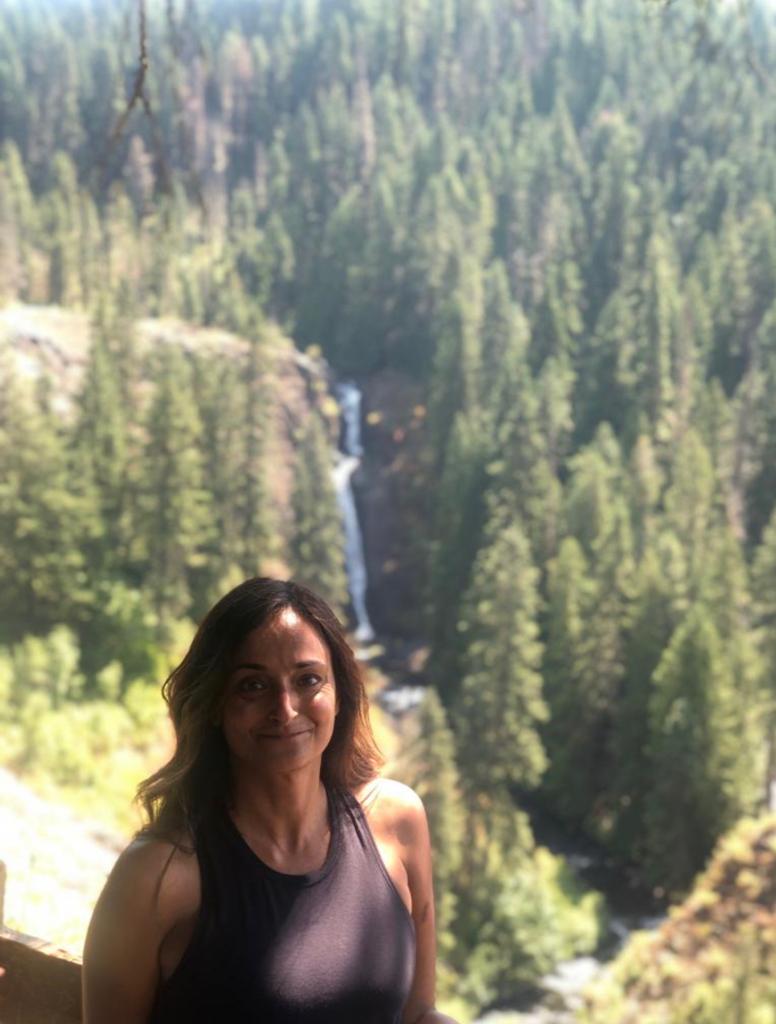
Please introduce yourself
My name is Natasha Sisodiya, and I turned 50 in February. I have been married for 25 years and have two boys, Shaan (18) and Taran (15). I was born in India and raised in Saudi Arabia and Canada before moving to San Francisco in 1992. In August of last year, my family and I moved to Los Angeles.
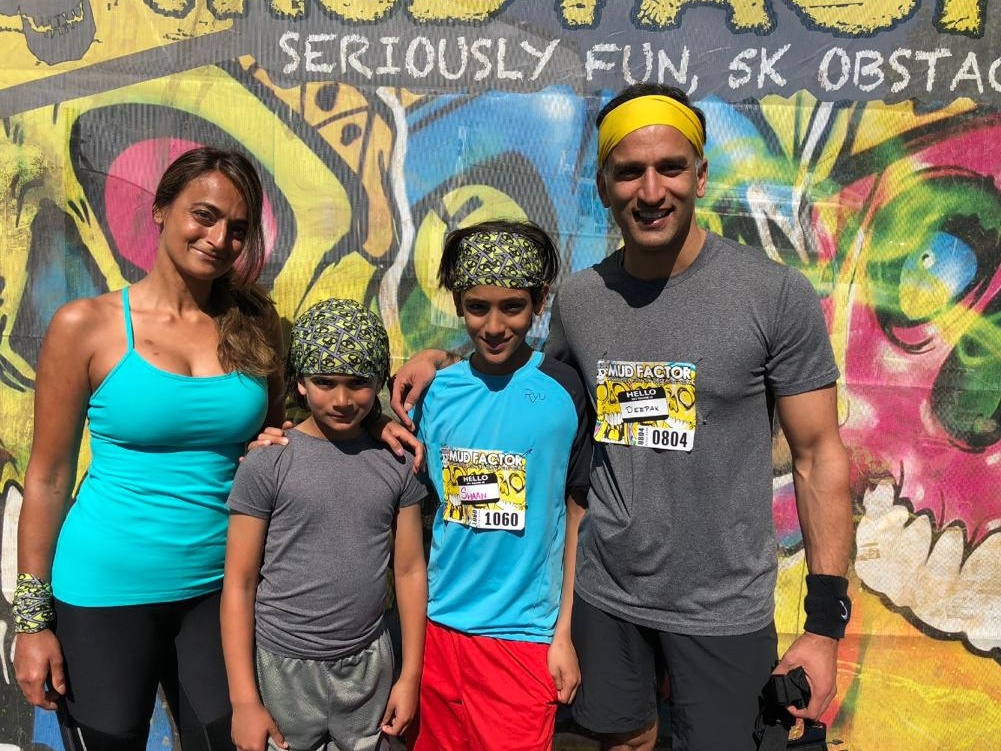
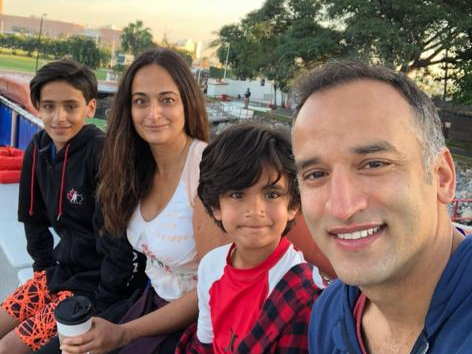
What symptoms led to your diagnosis?
It took almost a year for doctors to diagnose me with scleroderma. Initially, the first doctor believed it was drug-induced lupus and advised me to wait for a few months for my antidepressant medication to leave my system.
The skin tightening was the scariest and hardest part of my life, and not knowing what it was made it even scarier. The doctors told me it was a very serious and rare disease with no cure. They had to manage it and check my heart and lungs. This was all very new and scary for me, as I had never dealt with any health issues before.
The initial symptoms were joint pain, stiffness, and numbness in my arms and legs. I also experienced fatigue and low-grade fevers, as well as a rash on my face. My fingertips turned blue or white when exposed to cold, and my skin became tight and shiny. My lips disappeared, and when I smiled – you could only see my teeth. The facial changes started within the first five years, but if you didn’t know I was sick, you wouldn’t immediately recognize it.
I went to several doctors, and one of them thought it might be an allergy, so I was put on some new medications. However, the symptoms persisted, and I decided to see another doctor. This doctor suggested that I see a rheumatologist, and they initially thought it was rheumatoid arthritis. They put me on several drugs, but I didn’t seem to get better.
I went back to the doctor, and they noticed that I was losing my cuticles and had lines on my nails. They called a dermatologist to take a look, and they confirmed that I might have scleroderma. They did some specialized tests, which came back positive. I have been on different medications since then, trying to manage and keep the disease stable. So finally, I was diagnosed with scleroderma about 10 years ago when I turned 40, so I would say it was around 2013.
I feel blessed and lucky. Although I am not the person I used to be, I can still walk and take care of my family. I know some people with this disease have it much worse and struggle to do basic things, but I’m doing my best to manage and stay positive.
In the past, I have experienced some gastrointestinal issues. However, I undergo check-ups for my lungs and heart every six months, and everything seems fine.
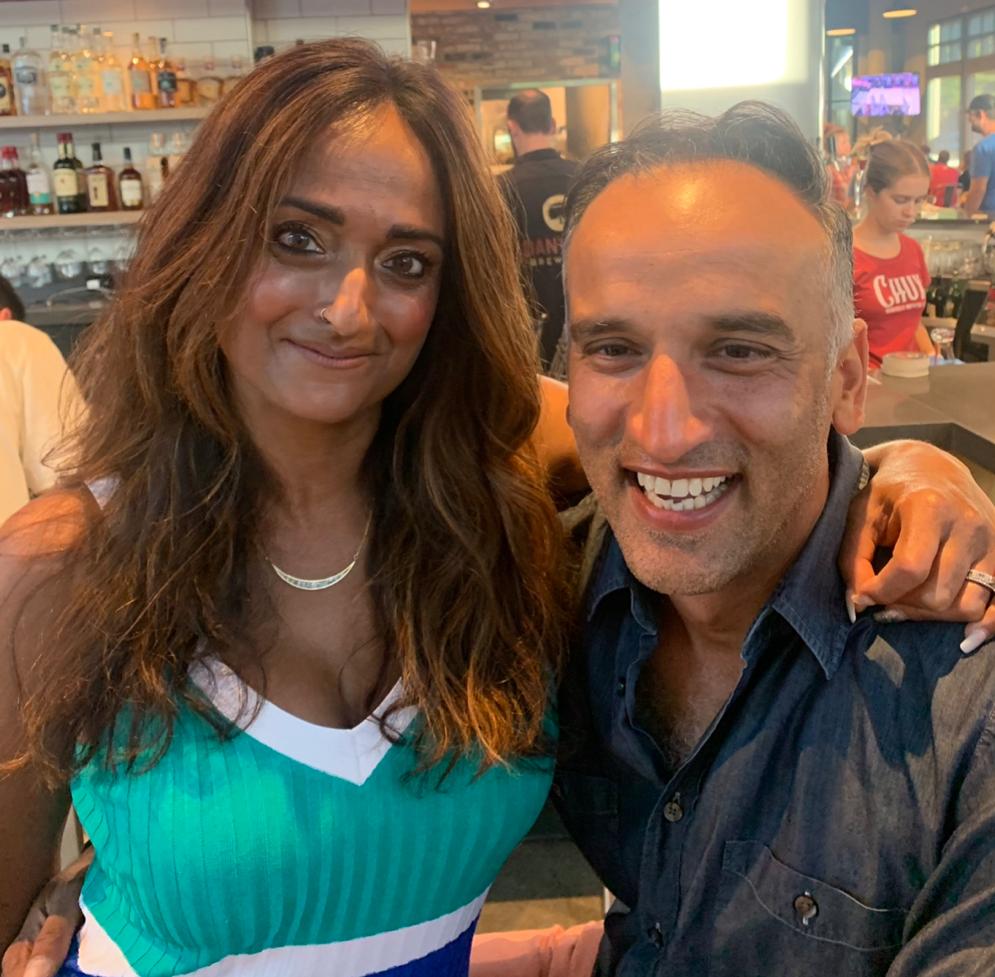
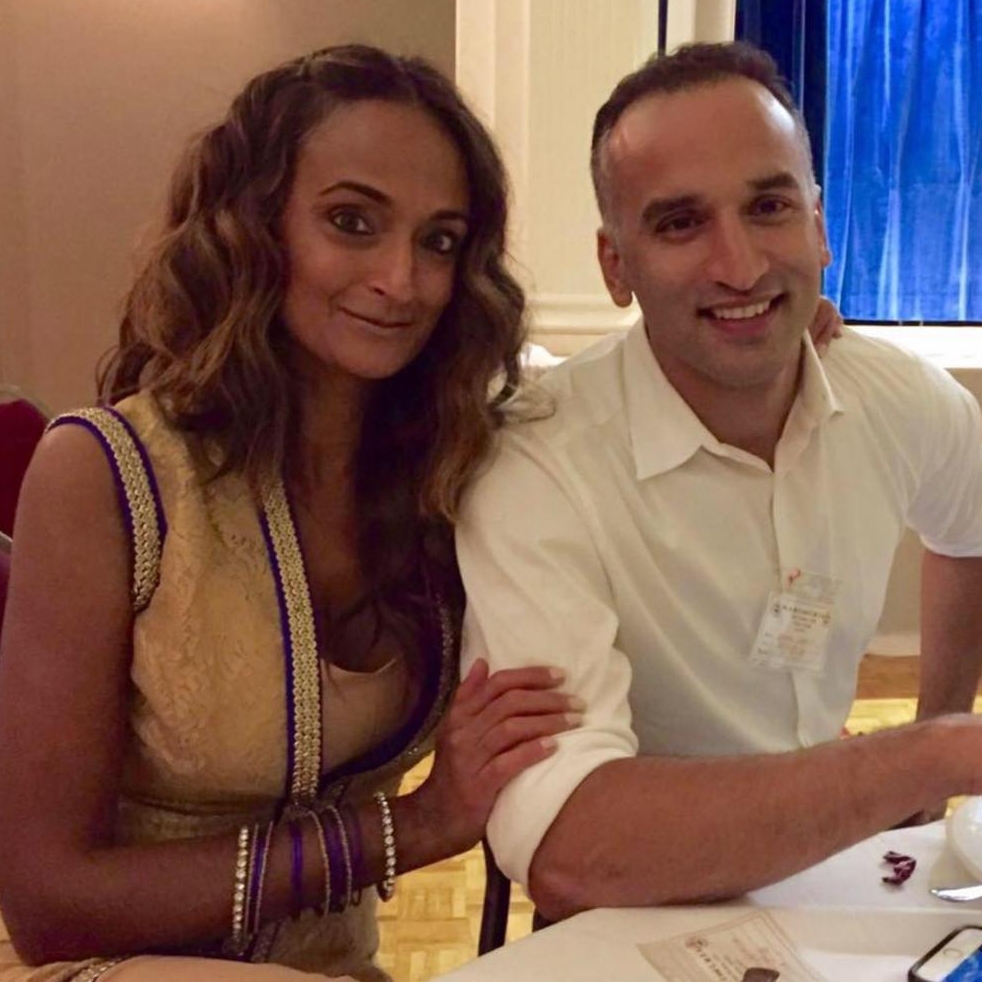
To what extent did you understand your diagnosis?
Honestly, when I was diagnosed, I had no clue what scleroderma was. But I got really scared when the rheumatologist told me it was a serious and rare disease and that I needed to be monitored every six months to ensure it wasn’t spreading. Eventually, I switched from Kaiser to Stanford for their scleroderma clinic.
After a year of denial, I joined a support group and met people who were dealing with similar issues. I also did a lot of reading and research to learn more. Making these connections helped me to not feel so alone since most people I know are unfamiliar with scleroderma. In terms of my experience, I’m happy to share more.
Has scleroderma impacted your mental health?
Currently, I am getting used to a new normal. For years, I was deeply depressed about my condition, asking “Why me?” I was in denial for about three years.
The biggest factor that helped me was Ayurveda and Panchakarma, which I learned about growing up in India.
When I was in my early forties, I underwent a two-week Panchakarma therapy, and it did wonders for me. It was an intense massage and ginger tea, and I had to follow a strict diet regimen, disconnect from my family, and spend time alone. During this time, I did a lot of reading about gratitude and being thankful, which helped me accept my situation and changed my perspective.
However, it was not an easy journey. When I was first diagnosed, I was angry and scared, and it affected my family as well. There are still days where I have a pity party and cry, but for the most part, I accept my condition and focus on managing it and enjoying life. Instead of dwelling on why it happened, I try to figure out how to deal with it and move forward.
Which symptoms have been hardest to deal with?
The joint pain and muscle weakness have definitely been the hardest symptoms to deal with. I used to exercise a lot and do high-intensity workouts, which I can’t do anymore. Accepting this new normal was tough for me.
The cosmetic changes also brought me down, even though no one else may have noticed.
How have your relationships changed, and how have you adapted?
Living with scleroderma has made it challenging to maintain friendships, and I now have only two close friends. Many people I used to socialize with are very active and social, and I often have to cancel plans due to my health.
I stopped socializing with friends due to depression. It took time to reach out to my few friends who now understand my situation.
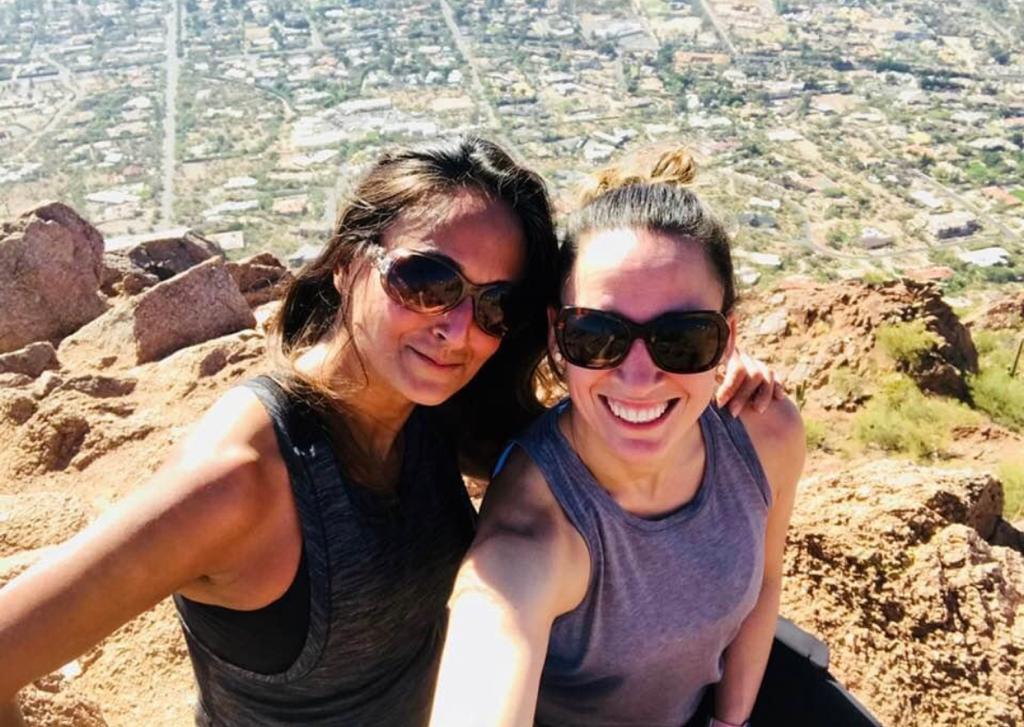
My depression worsened, which impacted my relationship with my husband. I feel insecure about my appearance, and it has affected our intimacy. Furthermore, when I am feeling down, it affects everyone in the house, and there have been many days when I have been in bed, crying.
It was challenging for my family, particularly for my husband, who is a medical professional and understood the condition I was going through. My kids struggled as I was not able to do the things I used to do with them.
Nevertheless, the people in my life have known about my condition for a long time, and my friendships remain intact. With my children now older, they require less of my attention, and I am focusing on improving my relationship with my husband and striving to be happier overall.
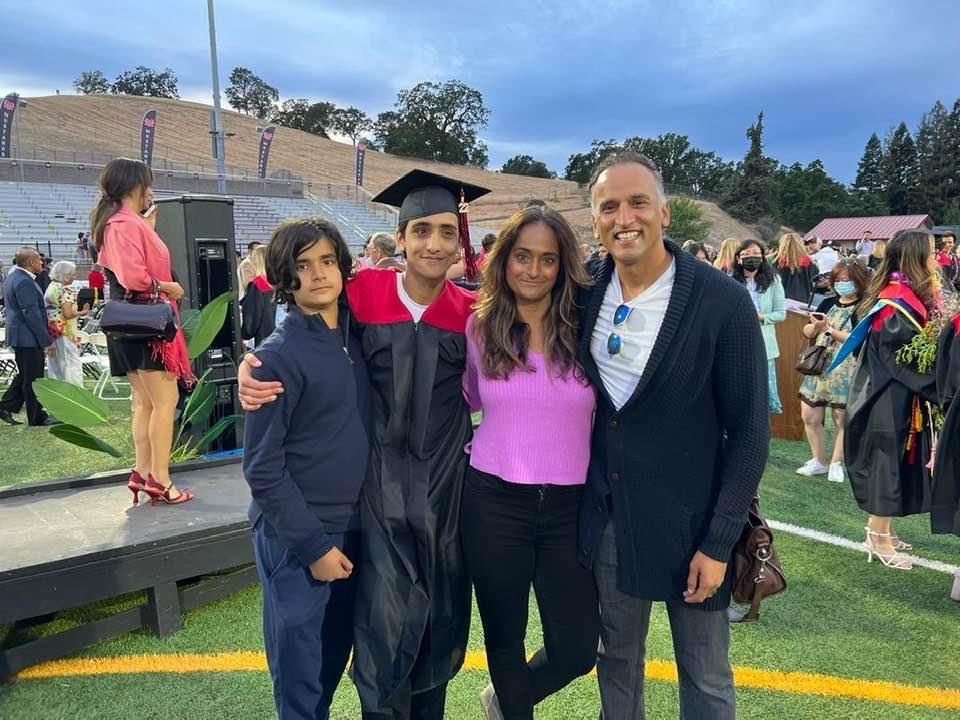
My friends have been a great support, checking in on me and knowing when I’m not doing well. It’s hard for me to ask for help, but I’ve learned that it’s okay to do so.
Even something as simple as asking my parents to take the kids to school or bring them food used to be a challenge, but now I know that it’s important to reach out for help when I need it. I used to try to do everything myself, but I have learned that’s not always possible.
My parents have also been amazing and phenomenal in their support for me. When I went through a tough time with my health, they stepped in and took care of my children because my husband was busy with work. They have always been there for my kids, even when I had to go on disability and wasn’t well. When I lived in San Francisco, they were close by and helped with everything from dropping off food to looking after the kids.
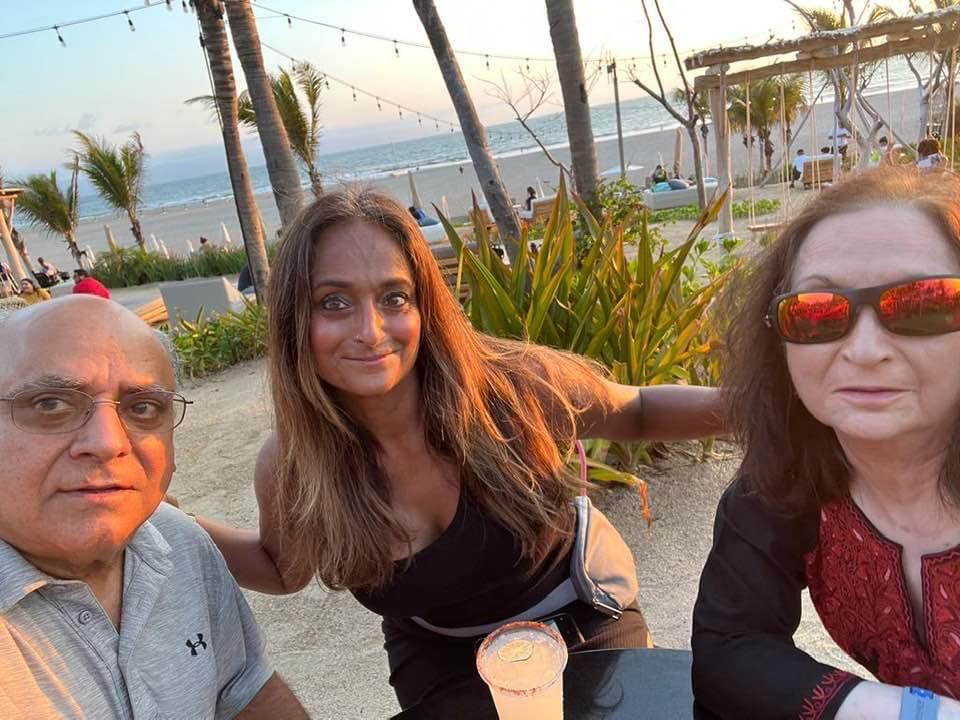
My brother was also supportive. He and my parents encouraged me to try alternative therapies like Panchakarma, which I hadn’t believed in before.
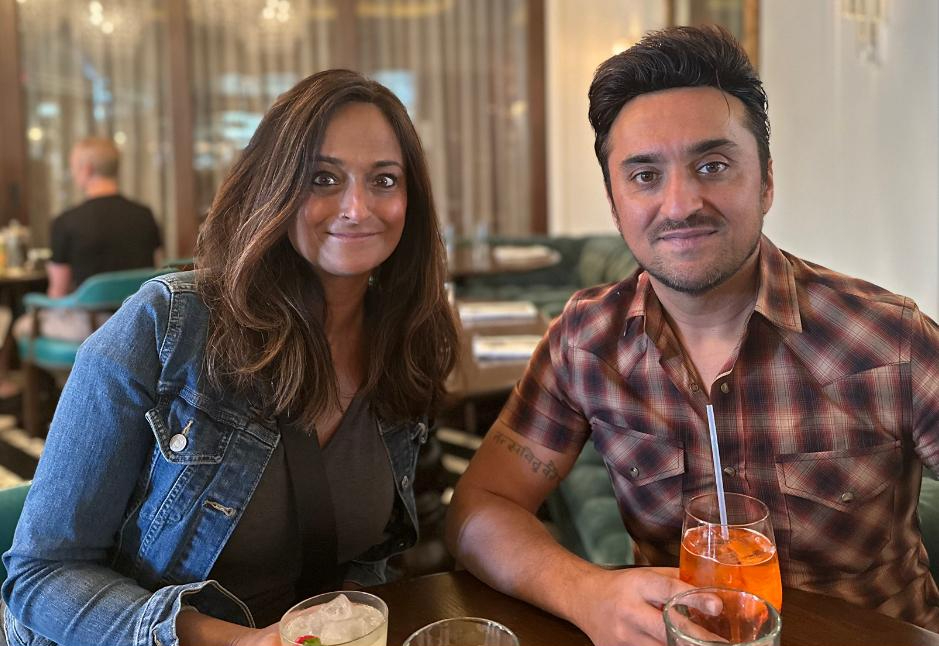
How have you adapted at work?
The symptoms of my illness became quite severe on 3 occasions while I was working. At that time, they were trying different medications, such as methylene, but the previous drugs weren’t effective. Due to this, I went on disability and later returned to work part-time. This affected my ability to work full-time as I did not have the energy, and the fatigue and pain were present.
Although they were unsure about what it meant at first, my coworkers have been very understanding. They were supportive, but things became more comfortable for everyone once I received a letter from my doctor explaining my condition, the need for monitoring, and the impact of stress. My coworkers made adjustments to help me, particularly as an accountant who works on a computer. Despite the challenges, they were very supportive, and when I went on disability, they took me back part-time, allowing me to work flexible hours.
Has scleroderma impacted your lifestyle?
My diet has undergone a huge change. While I occasionally indulge in cheap meals, I am mindful that I will feel fatigued or experience more joint pain than usual the following day.
In terms of exercise, I still stay active, but instead of running, I walk. The biggest lesson I have learned is to listen to my body, and if it tells me I cannot do something, I do not push myself. Instead, I try to keep busy and stay active even if I am not feeling well.
What helps you in difficult times?
Talking to my best friend helps. And having faith that things will get better, even though it can be hard to believe at times. In the past, I wondered if my low moments would be permanent fixtures in my life, but I learned they are temporary. I can rise again.
I have found that keeping busy and talking to others who are dealing with similar health issues, regardless of whether they have scleroderma, has been helpful.
Scleroderma has affected major decisions in my life, such as missing marathons and declining job offers due to my limited mobility in cold weather. However, it has also taught me to be grateful and to appreciate every moment.
Life is fragile, and I do not take my good days for granted.
Tell us about @bytesofyum and your passions
I have a passion for hiking, exercising, and cooking healthy food. After being diagnosed with scleroderma, my passion for cooking arose as I had to watch my diet carefully. It led me to create an Instagram page (@bytesofyum) to share my healthy cooking and support me during my journey.
Hiking and exercising were part of my routine, but I had to stop due to the illness affecting my muscle tightness and joint pain. However, using a steam room helped me loosen up and minimize joint pain.
I am still passionate about hiking and would love to hike somewhere overseas like Kilimanjaro in Africa someday.

What are your plans for the future?
At the moment, my focus has been on the recent move, so I haven’t fully mapped out my plans. However, I have a strong passion for food.
My professional background lies in accounting, and I do intend to return to work eventually. However, my goal is not to pursue high-level positions like Controller or CFO solely for financial reasons.
Instead, I aspire to combine my love for food and my interest in health and wellness. Whether it’s sharing recipes or educating others on how diet can heal the body, that’s where my true passion lies. Although I’ve only dabbled in this realm for fun through my Instagram account, I would like to delve deeper and actively help people in the field of health and wellness.
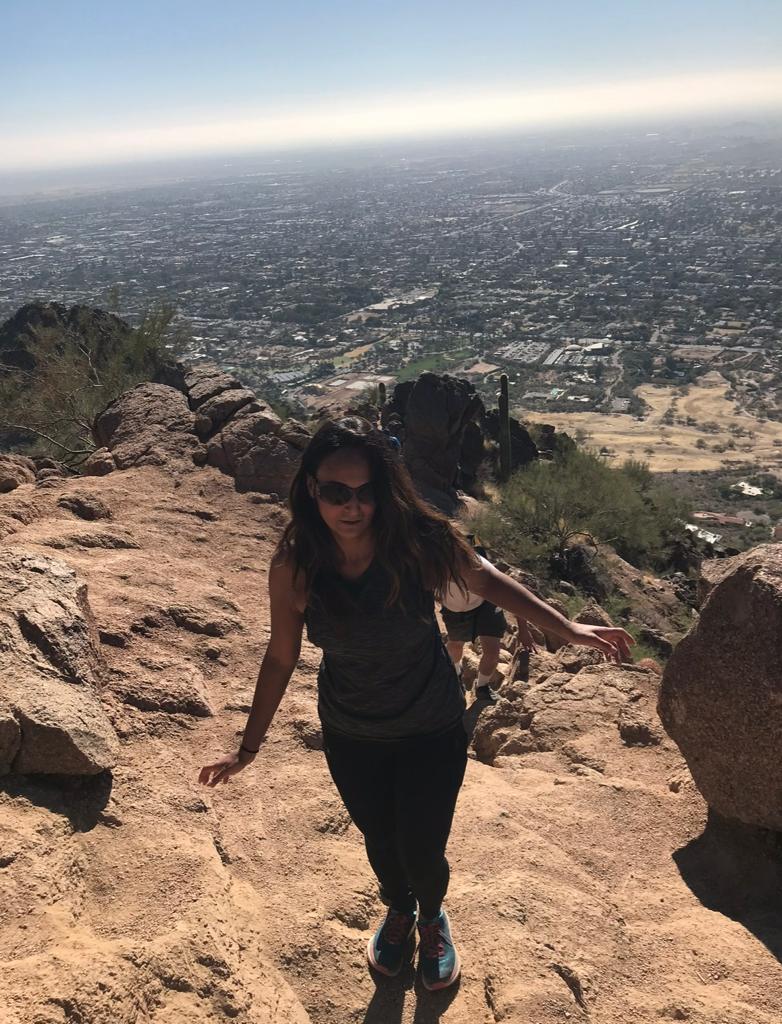
What treatments have you tried?
I am currently taking Cellcept and Plaquenil. In the past, I have taken Methotrexate and Imuran. I had to inject methotrexate into my stomach once a week, which I did not enjoy due to its long-term side effects and lack of improvement in my condition. While it hasn’t been a complete cure, these medications have allowed me to function and manage my symptoms.
In the past, I have also tried Ayurveda Panchakarma Detox and hand therapy to improve my mobility, but I found that taking care of myself through diet, exercise, and self-care was just as important as my medications. I pay close attention to what I eat and what products I use on my skin, as I now understand the significance of these choices in maintaining my health.
Can you discuss your experience with medical expenses?
I am fortunate to have health insurance, so my medical expenses have not been too much of a burden. I pay a $20 copay each time I see a specialist and around $20 a month for medication. Other tests cost me around $100 out of pocket, which is nothing compared to what my insurance covers.
There have been expensive procedures such as heart echos, endoscopies, and lung testing costing around $20,000. Thankfully, my insurance covered these expenses.
While my medical expenses have not caused major financial adjustments, not working has affected me financially. I miss making money to travel and do fun things, but I’m way more concerned about returning to work as stress can trigger a flare-up of my symptoms. For now, I am focusing on taking care of my health and family.
Sometimes I feel guilty that I can’t contribute financially to our household. My husband is doing well professionally and has been the breadwinner, so I feel blessed in that way. We’re planning for retirement, and we’re not in much debt. We’re frugal, which can be annoying, but it’s smart.
I try to focus on today, but I worry about my kids’ future. That’s just part of being a mom.
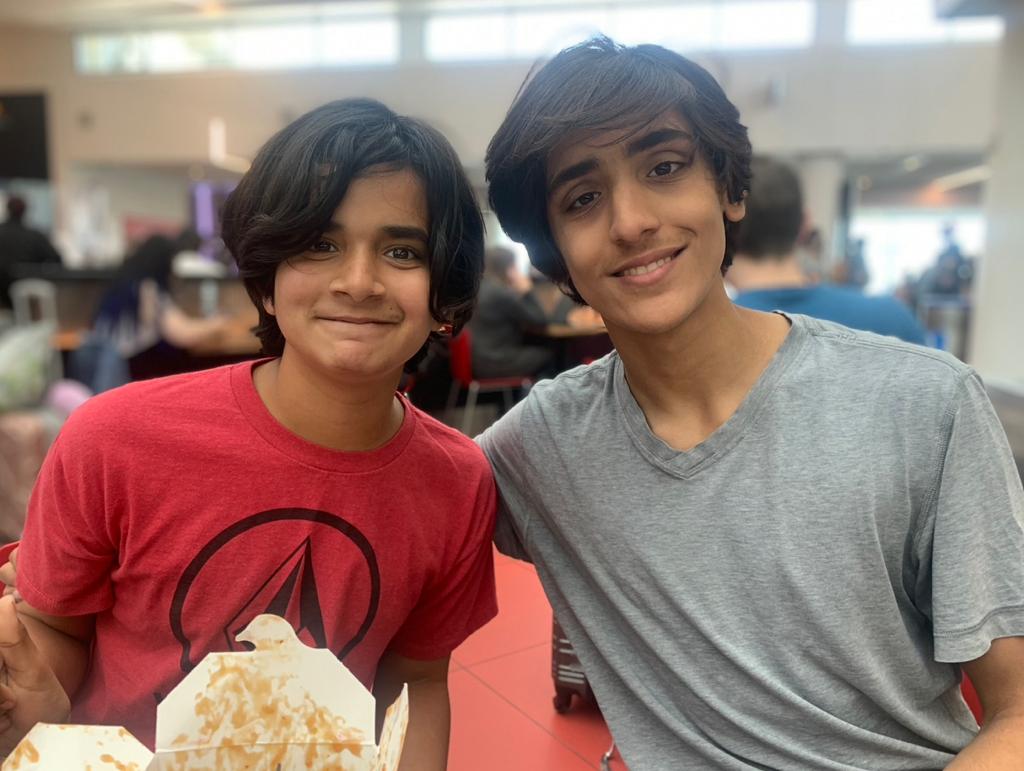
Have you found any scleroderma communities?
I belong to two Facebook groups for the scleroderma community and a few on Instagram. I used to be more active, but it can be negative and bring me down. However, I have met people who are going through similar situations and have made jokes and had positive interactions. Sometimes you have to laugh, right?
I met one person through Instagram, and we keep in touch. I also receive messages from people who have scleroderma, and we share our experiences and symptoms. I have helped some people with diet and shared recipes.
I met three people through Facebook when I lived in San Francisco, and I am supposed to meet one person in Southern California, but she is still recovering from being in the hospital.
What is something you wish you knew earlier?
I wish I had known how important it is to pay attention to what I put in and on my body, regardless of my health status. Although I was always active, my diet was full of processed foods. Now, I eat mostly organic food and try to avoid packaged foods, canned foods, and plastic bottles. I consume only organic meat and dairy and avoid gluten.
Taking care of our bodies is essential, and we need to nurture and protect them. While it is unclear whether my illness resulted from my previous lifestyle, I know that taking care of myself now makes me feel better.
What are some skills you’ve learned from your experience?
I’ve learned how to cook, which I didn’t know before. Additionally, self-care has become a crucial skill for me.
Previously, I didn’t prioritize my well-being and always focused on others. However, my experience with scleroderma has taught me to listen to my body and not push myself too hard.

What advice do you have for people with scleroderma or other chronic illnesses?
I know it’s hard, but try to stay positive. Focus on what you can do and the things you’re grateful for.
While it’s understandable to feel angry, depressed, and bitter, accepting your new normal and moving forward is essential. It takes time, but eventually, you’ll come to terms with it.
Be sure to follow us on Instagram and Facebook (@sclerounited) to see more scleroderma warriors’ journeys in our weekly Sclero Sunday series.
Are you a scleroderma warrior? We’d love to interview you for Scleroderma Stories! Please visit tinyurl.com/share-my-sclero-story or email us at contact@sclerounited.us
